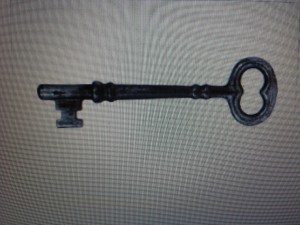There is a rip-snorting western on TV. It portrays lawlessness and gun fighting in the streets. The old West was not a safe place to live. One of my great, great grandfathers kept a diary. He frequently referred to what he called “Indian Excitement.” The diary lists numbers of people killed by the Indians and tells of forming groups for protection. In 1865, he was killed by Indians on his farm in Weatherford, Texas. A great grandmother always carried a pistol in her apron pocket because of “all the meanness all around.”
Things had tamed down by the time I was born. Our house was never locked when I was small. The economy was not good in the thirties. Beggars would come to the door asking for food. My mother would fix a bundle of food and they would be on their way. I don’t recall being frightened by any of these men. . The only conversation I recall was my mother remarking that some of these men looked stronger and as able to work as my Dad.
The doors had screens which were sometimes latched to keep them from swinging in the wind. The inside wooden doors were not locked. Many of the locks on the doors were the same and could be opened with a master key called a skeleton key. The same key could unlock the door on a number of houses.
 skeleton key
skeleton key
The dairy was located one mile south of Breckenridge. The house and barns set back from a major highway (US183). During World War 11, Breckenridge was the town where soldiers came to buy alcohol when they had passes. Camp Wolters in Mineral Well, Camp Bowie in Brownwood, and Camp Barkeley in Abilene were all located in dry (no alcohol sales) counties. When the bars closed in Breckenridge, the MPs* would round up the drunken soldiers. It was not uncommon on weekends to hear them marching along the highway. The MPs would be counting a loud cadence and the soldiers were often noisy and rowdy. This was not anything frightening. It was more like, “there they go again.”
I rode my bicycle alongside the highway and rode my horse in the barrow ditch beside that highway. I was cautioned and told what to do if anyone stopped, but no one ever paid any attention, unless it was a wave as they went by.
Milk was put inside refrigerators in homes that were not locked. It was often put in the refrigerator before the family awoke for the day.
In 1953, neighbors about two miles away came home from church on a Sunday night and discovered that someone had stolen all of the food in their freezer (called a deep freezer in those days.) My dad installed dead bolts on all of the doors and started locking the doors.
Highways were safer also. People were not concerned about their safety if they shared a ride with a hitchhiker. If a car was stopped beside the road with trouble, someone stopped and helped them or took them to the nearest service station. Truck drivers were the knights of the road. They could be counted on to always stop and help whenever they saw someone in need.
Today we should always be aware of our surroundings at all times and should be cautious wherever we go. We are reminded daily by the newscasts that we are not safe. Are we going backward?
*Military Police